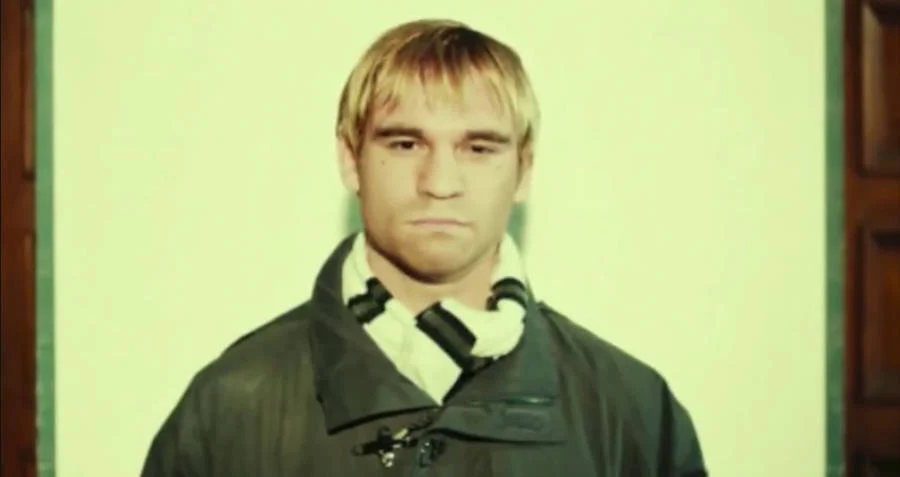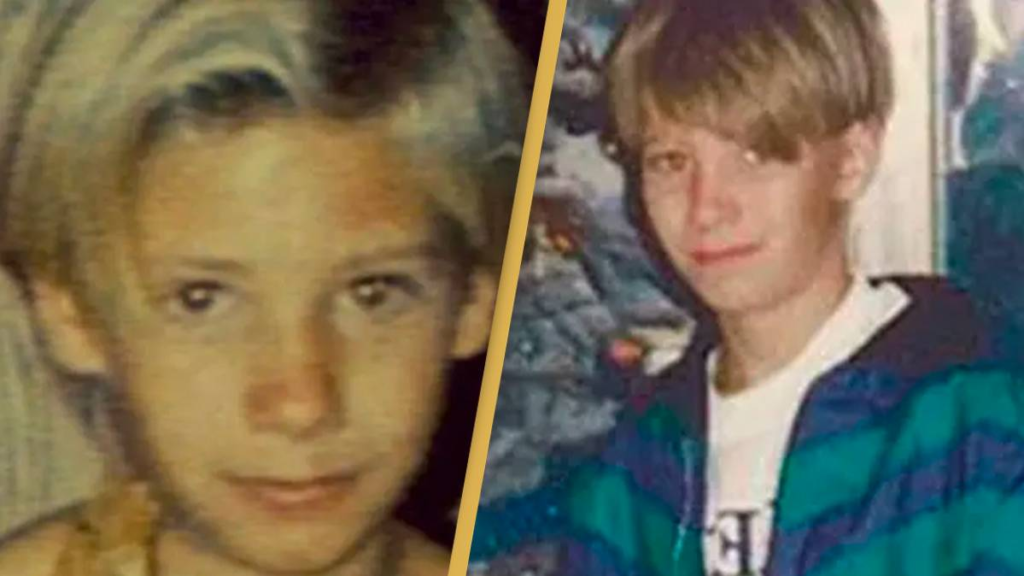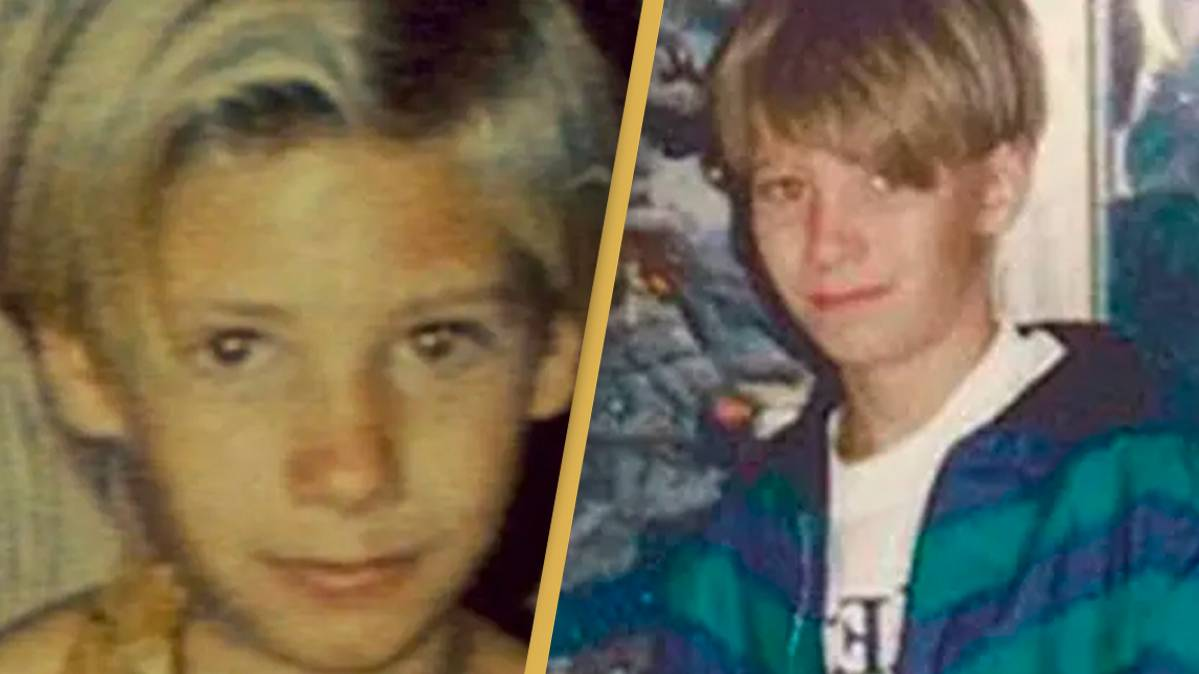The case of Nicholas Barclay is a haunting tale of a missing child, a desperate family, and a shocking twist involving identity theft. This complex case has captured the public’s imagination for decades, leaving many questions unanswered.
Nicholas Barclay was a thirteen-year-old boy who vanished without a trace from San Antonio, Texas, in June 1994. His disappearance sent shockwaves through the community, and his family was devastated. The circumstances surrounding his disappearance were shrouded in mystery, with conflicting reports suggesting both foul play and the possibility of a runaway.
The case took a bizarre turn in 1996 when a young man claiming to be Nicholas Barclay appeared in Spain. This individual, later identified as Frederic Bourdin, a French con artist, managed to convince the Barclay family, law enforcement, and even Nicholas’s own sister that he was indeed the missing boy. This extraordinary deception was facilitated by a striking resemblance between the imposter and the original Nicholas Barclay.
Bourdin’s elaborate ruse unfolded over several months, during which he was treated as the long-lost son by the Barclay family. However, cracks began to appear in the facade as inconsistencies in Bourdin’s story and behavior raised suspicions. A private investigator hired by the family eventually exposed the truth, revealing Bourdin’s true identity.
The case of Nicholas Barclay highlights the vulnerability of families dealing with the disappearance of a loved one. It also underscores the dangers of identity theft and the lengths to which some individuals will go to exploit such vulnerabilities. The story serves as a cautionary tale about the importance of critical thinking and skepticism, even in the face of overwhelming emotional circumstances.
Despite the exposure of Bourdin’s deception, the mystery surrounding the disappearance of Nicholas Barclay remains unsolved. The case continues to haunt the Barclay family and the community, and it serves as a reminder of the enduring pain and uncertainty experienced by those affected by missing persons cases.
The case has been the subject of numerous documentaries, books, and articles, capturing the public’s fascination with the bizarre and tragic events. It has also sparked discussions about the psychological impact of such experiences on families and the complexities of human identity.
While the true fate of Nicholas Barclay remains unknown, the case serves as a chilling reminder of the power of deception and the enduring hope that accompanies the search for missing loved ones.
The Disappearance
Nicholas Barclay’s disappearance on June 10, 1994, marked the beginning of a heartbreaking ordeal for his family. The circumstances surrounding his disappearance are unclear, with conflicting reports suggesting both foul play and the possibility of a runaway. The young boy was last seen playing basketball with friends, and his older half-brother, Jason, instructed him to walk home. However, Nicholas never arrived.
The initial investigation into Nicholas’s disappearance yielded few leads, and the case went cold. The Barclay family was left to grapple with the uncertainty and grief of losing their son. As time passed, hope dwindled, but the family refused to give up on finding him.
The Imposter
In 1996, a glimmer of hope emerged when a young man claiming to be Nicholas Barclay appeared in Spain. The individual, later identified as Frederic Bourdin, exhibited a striking resemblance to the missing boy, leading to a whirlwind of events. The Barclay family, desperate for answers, embraced the possibility that their son had been found alive.
Bourdin, a skilled con artist with a history of deception, meticulously crafted his identity as Nicholas Barclay. He studied details about the missing boy’s life, gaining knowledge about his family, friends, and personal history. With this information, he was able to convincingly portray himself as the long-lost son.
Law enforcement agencies were also deceived by Bourdin’s performance. His resemblance to Nicholas Barclay, combined with the desire to bring closure to the case, led to his acceptance as the missing boy. The imposter was reunited with his family, and the media eagerly covered the heartwarming story of a lost child found.
The Unraveling of the Deception
Despite the initial euphoria, doubts began to emerge about Bourdin’s true identity. Inconsistencies in his story, coupled with strange behavior, raised suspicions among those close to the Barclay family. A private investigator hired by the family began to delve deeper into the case, uncovering evidence that pointed to Bourdin’s deception.
Through meticulous investigation, the private investigator was able to establish Bourdin’s true identity as a French con artist with a history of impersonation. The revelation shattered the hopes of the Barclay family and exposed the shocking truth about the young man they had welcomed back into their lives.
The Aftermath
The exposure of Bourdin’s deception was a devastating blow to the Barclay family, who had already endured years of pain and uncertainty. The case had brought them false hope, only to be replaced by a new wave of grief and confusion.
The incident also raised questions about the competence of law enforcement agencies and the vulnerability of families dealing with missing persons cases. The case became a cautionary tale about the dangers of identity theft and the importance of critical thinking, even in the face of overwhelming emotion.
Despite the tragic outcome, the case of Nicholas Barclay continues to captivate the public imagination. It serves as a reminder of the enduring hope that accompanies the search for missing loved ones, as well as the devastating consequences of deception.
The mystery surrounding the disappearance of Nicholas Barclay remains unsolved, leaving open questions about his fate. The case stands as a poignant testament to the complexities of human identity and the enduring impact of loss.
The Legacy of the Case
The case of Nicholas Barclay has had a lasting impact on popular culture, serving as the subject of numerous documentaries, books, and articles. It has sparked discussions about the psychological impact of such experiences on families and the complexities of human identity.
The case also highlights the importance of critical thinking and skepticism, even in the face of overwhelming emotion. It serves as a cautionary tale about the dangers of identity theft and the vulnerability of individuals and families in the midst of crisis.
While the true story of Nicholas Barclay remains a mystery, the case continues to resonate with the public, serving as a reminder of the enduring hope and resilience of those affected by missing persons cases.
Conclusion
The case of Nicholas Barclay is a haunting tale of loss, deception, and the enduring search for truth. It is a story that has captivated the public imagination for decades, leaving a lasting impact on those involved and those who have followed the case.
While the mystery surrounding Nicholas Barclay’s disappearance remains unsolved, the case serves as a powerful reminder of the complexities of human nature and the enduring hope that accompanies the search for missing loved ones.
The legacy of Nicholas Barclay will continue to be explored and analyzed, serving as a cautionary tale and a source of inspiration for those who face similar challenges.
As the case continues to unfold, the search for answers will persist, leaving a lasting impact on the hearts and minds of those touched by this extraordinary story.

FAQs
The Case
Q: Who is Nicholas Barclay?
A: Nicholas Barclay was a 13-year-old boy who mysteriously vanished from his San Antonio, Texas home in 1994.
Q: Who is Frédéric Bourdin?
A: Frédéric Bourdin is a French con man with a history of impersonating missing children. He is the central figure in the “The Imposter” documentary.
Q: How did Frédéric Bourdin impersonate Nicholas Barclay?
A: Bourdin, after hearing about Nicholas’ disappearance, claimed to be the missing boy. Despite physical differences, he convinced the Barclay family and authorities that he was indeed Nicholas.
Q: How long did the deception last?
A: Bourdin lived as Nicholas Barclay for approximately a year before his true identity was uncovered.
The Documentary
Q: What is “The Imposter” documentary about?
A: “The Imposter” is a documentary film that explores the incredible story of Frédéric Bourdin’s deception and its impact on the Barclay family.
Q: Who directed “The Imposter”?
A: The film was directed by Bart Layton.
Q: What is the genre of “The Imposter”?
A: It’s categorized as a true crime documentary with elements of a thriller.
Q: Where can I watch “The Imposter”?
A: The documentary is available on various streaming platforms, including Netflix.
The Impact
Q: How did the Barclay family react to the discovery?
A: The Barclay family was devastated and confused by the revelation. The film explores their emotional journey and the impact of the deception on their lives.
Q: What happened to Frédéric Bourdin after being exposed?
A: While specific details about Bourdin’s life after the exposure are limited, the documentary provides some insights into his criminal history and psychological profile.
Q: What lessons can be learned from this case?
A: The case highlights the importance of critical thinking, the potential dangers of relying solely on physical resemblance for identification, and the emotional toll of such a traumatic experience on families.
Public Reaction and Controversy
Q: What has been the public reaction to “The Imposter”?
A: The documentary has received critical acclaim and has sparked numerous discussions about identity, deception, and the psychology of the involved parties.
Q: Has there been any controversy surrounding the film?
A: Some critics have raised questions about the ethical implications of certain scenes and the portrayal of the Barclay family.
The Lasting Impact
Q: Did the Barclay family ever find closure?
A: The film suggests that the case left a lasting impact on the Barclay family, and their journey towards healing is ongoing.
Q: What is the current status of the Nicholas Barclay case?
A: Nicholas Barclay remains missing, and the case remains unsolved.
“The Imposter” is a thought-provoking documentary that raises questions about human nature, trust, and the complexities of identity. It’s a film that will stay with you long after the credits roll.
To Read More; click here
